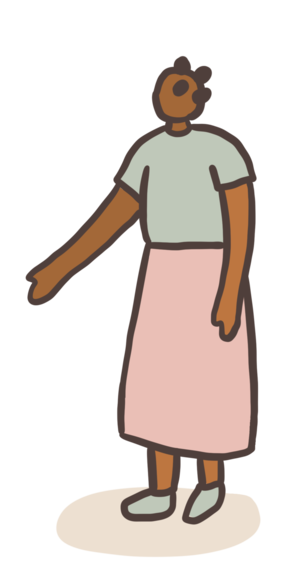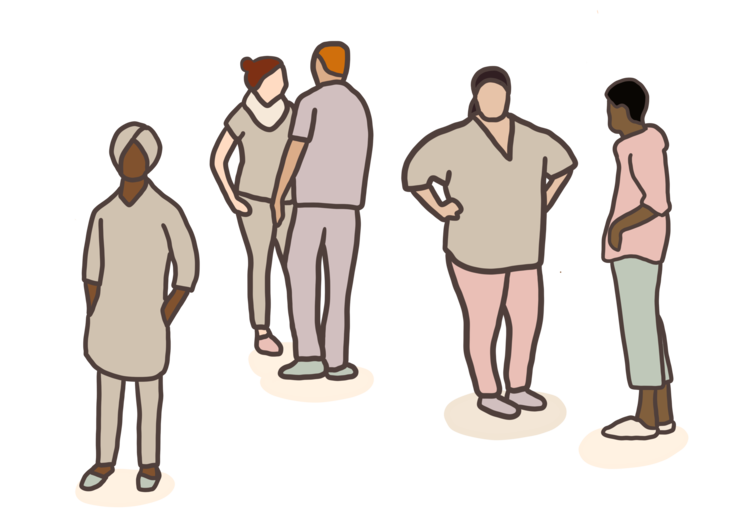MB recognises the influences that culture, geography and social circumstances can have on people’s experiences of our urban landscapes, housing and places.

Migrant’s Bureau is a multi-disciplinary social design and urbanism practice that emerged in 2019.


MB's unique perspective as people who continually negotiate the native and the migrant, the foreign and the local, forms a key part of how we collectively interpret the complex systems and it’s built and natural environments.


MB values innovation + emerging technology that can enable immigrant and migrant communities to live, work and enjoy good quality housing, community and play spaces.

Vision
Migrant's Bureau is committed to:
+ Enabling wider discourses engaging decolonial, environmental and equitable narratives and research through our work.
+ Empowering more black-led design, ecology, landscape and environmental practices with the decolonial vision for the future.
+ Developing programmes and workshops for primarily working-class children, young people and elders to understand the possibilities tech and the natural environment can have in their communities.
+ Continuing to encourage inclusive participation with design, history of land, natural environments, policy and research through communities to challenge social inequities and injustice.
-
+ Considering methods of working across defined disciplines and professions to bring together systems and people through projects and engagements.
Values
Migrant's Bureau is committed to:
-
Actively creating, learning and facilitating upon our understanding of equity especially for Black women, sustainability, shared distribution and urban systems. MB believes in representing and serving local and trans-local communities as well as collaborating with others.
-
MB recognises and celebrates the value of safe, healthy and equitable working environments. The design + urbanism studio refuses to work with organisations that continue to perpetuate exploitative practices with no willingness to be better for communities.
Policies
Panels/ Event Participations:
-
+ Addressing equitable futures means MB does not participate in all male panels or panels without people from black and brown communities.
-
+ MB only takes on opportunities that align with our core vision and values. MB will continue to turn down any that we deem to be exploitative.
-
+ MB will continue to share and promote opportunities to networks and practices that share our values towards equitable futures.
Internal Sustainability:
-
+ MB's wellbeing is integral to the work undertaken. Encouraging breaks, flexibility and holistic approaches in how MB work with others is integral.
-
+ Public and shared modes of transport are used whenever necessary.
-
+ As MB is primarily digital, public infrastructures are used to support local authorities and areas for co-working.
-
+ MB turns down unpaid work/opportunities unless MB is working for and with a voluntary/charity group or organisation. MB's work requires alot of our own mental, physical and emotional capacities and requesting to acknowledge or champion our value requires mutual respect and understanding.
Tenders + Collaborative Work:
-
+ MB welcomes projects and collaborative work from communities, organisations and public/civic sectors from all identities, environments and experiences that are focused on migration, equity and/or environmental sustainability and access.
- send through your interest here.
+ MB will refuse any work that has a short-notice of less than 2 weeks.

MB CLARIFICATIONS
Migration can offer up opportunities, but it can also create pockets of displacement for those historically marganisalised. Whether it's through the lens of immigration or the lived experience of being a refugee or asylum seeker, being a migrant and navigativing oppressive systems can cause negative impacts. MB aims to alleviate these pressures and create emerging approaches of how we can enable better transformations. Additionally, Nature, Bodies, Spaces and Animals are part of the wider ecosystem of migration that can and will migrate across different ecologies and conditions.
The historical marganilisation of Black communities has shaped the lived-experiences of many within our lineage today. The visibility of our skin colour and our indigenous tribes and cultures have endured colonialism, racism overtly and invertly through institutions and rigid/oppressive systems.
The vision for Founding-Director, Alisha Morenike Fisher, is to enable strategic and systemic transformation in which Black folks have the tools to equip themselves: feel heard, be seen, work and create together to build anew for ourselves and for the future of Black folks where we are no longer oppressed or have barriers for our progression.
According to Shelter’s Housing Crisis report, Black households are more likely to live in poor housing conditions, with 8% of Black households living in housing that it deemed to be unfit. Race riots in Notting Hill in West London in 1958 had highlighted the poor housing endured by black families, which included the tagline, “no coloureds, no Irish, no dogs” policy which meant that UK property owners provided many run-down housing to black people at exorbitant rents.Relegating/systemically denying power, wealth and access from different cultures and peoples who have been continually oppressed.
Migrant's Bureau works across local areas or scales as well as reaching far and wide around international borders.


